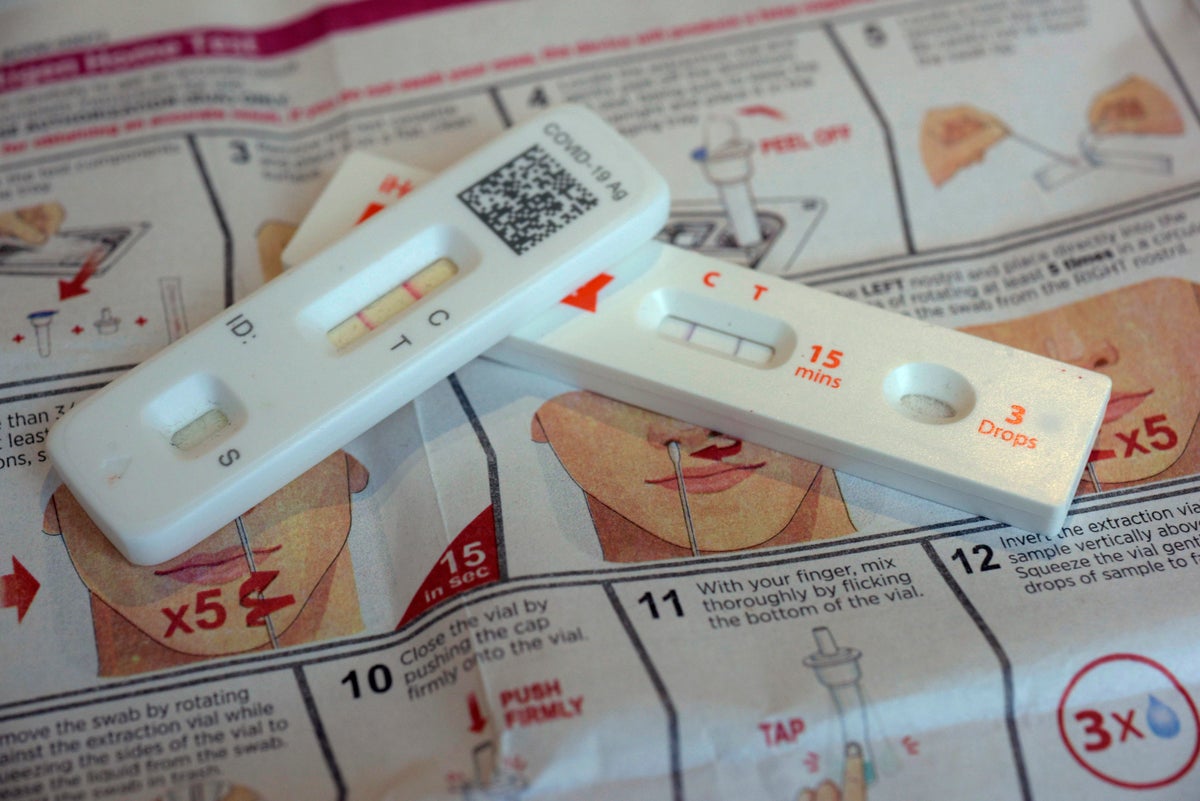
The federal government is restarting its mail-order Covid test program, the US Department of Health and Human Services (HHS) announced this week.
The program was halted when the Public Health Emergency status ended in May of this year. Since then, people in the US have had to pay for at-home tests, even as hospitalisations and deaths from the virus have risen steadily in recent weeks.
The HHS statement announcing the renewal of the mail-order program said the Biden administration has also granted Covid test manufacturers across the country $600m. “These critical investments in U.S. manufacturing will improve preparedness for COVID-19 and other pandemic threats in the future, strengthen the nation’s capacity to manufacture tests, and secure approximately 200 million new over-the-counter COVID-19 tests for future federal government use,” the statement said.
Starting Monday 25 September, Americans will be able to order free tests from COVIDTests.gov. All households are eligible for four tests.
If you have symptoms, the Centers for Disease Control and Prevention (CDC) recommends testing immediately. If you are only going to take a single test, opt for a PCR test, rather than an at-home test, since they are more reliable. If you use an at-home test instead and the result is negative, you’ll want to take another test in 48 hours or take a PCR test immediately to confirm the result.
If you have been exposed to Covid but you don’t have symptoms, the CDC recommends waiting at least five full days before testing yourself. If you’re only going to test once, you should take a PCR test; if you use an at-home test instead and the result is negative, you should re-test yourself in 48 hours. If that second test is negative, you should wait another 48 hours and test a third time. Following these instructions is the best way to assure your tests are accurate, experts say.
If you find an old at-home test in your home but it’s expired, you shouldn’t use it unless the Food and Drug Administration (FDA) has given it an extended expiration date. The FDA has provided a list of products that have been given this designation on its website. The list includes product names, lot numbers, original expiration dates, and extended expiration dates.
In addition to free tests, free Covid-19 vaccines are available at some pharmacies. The Bridge Access Program, from the CDC, offers updated Covid-19 vaccines to people who do not have health insurance (or those whose health insurance won’t cover the shot).
To find a pharmacy participating in the program and make an appointment, you can visit Vaccines.gov. After selecting which vaccine you’re looking for, you can filter for pharmacies that are participating in the program.
Experts are warning that the US needs to use all available resources to avoid potentially devastating consequences of a “tripledemic” this winter, which could happen if cases of Covid-19, influenza, and respiratory syncytial virus (RSV) peak at the same time. If this happens, hospital and urgent care centres in the US could see delays to regularly scheduled appointments, such as preventative cancer screenings.
To minimise the chances of this scenario, public health authorities say Americans should stay up to date on all vaccines and test when appropriate to slow the spread of the virus.
The CDC recently released a video showing director Dr Mandy Cohen talking about the safety and efficacy of Covid-19 vaccines, specifically, which are recommended for all people six months and older.
“While we would all love to leave Covid-19 behind, the virus is still here, and making some people very sick, especially older adults,” Dr Cohen said. “This recommendation was based on extensive data in clinical trials. As a doctor, a mom, a wife, a daughter, and head of the CDC, I would not recommend anything to others that I wouldn’t recommend for my own family. That’s why my nine- and 11-year-old daughters, my husband, my parents, and I will all be rolling up our sleeves to get our updated Covid-19 vaccine.”

.png?w=600)





